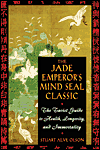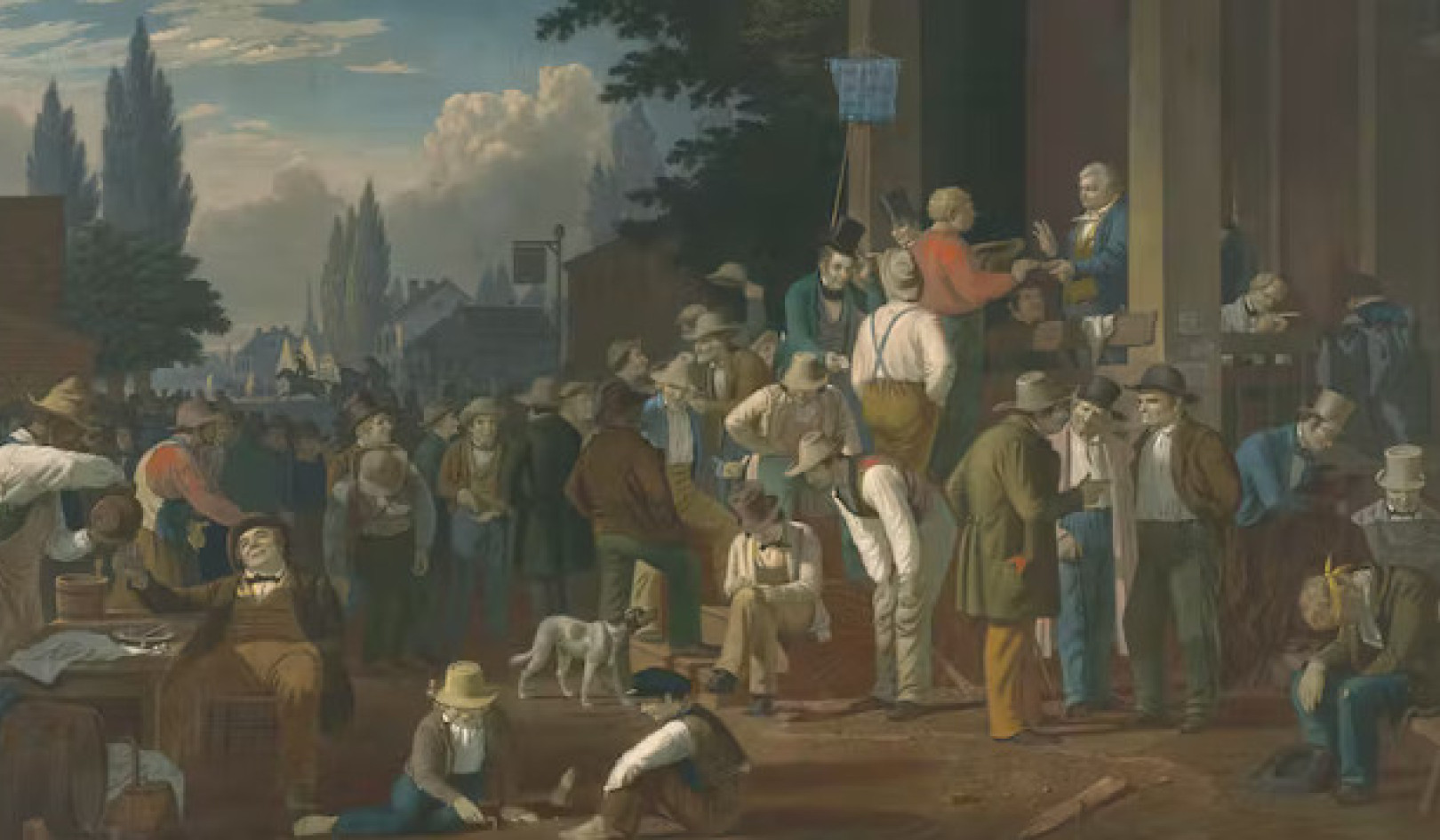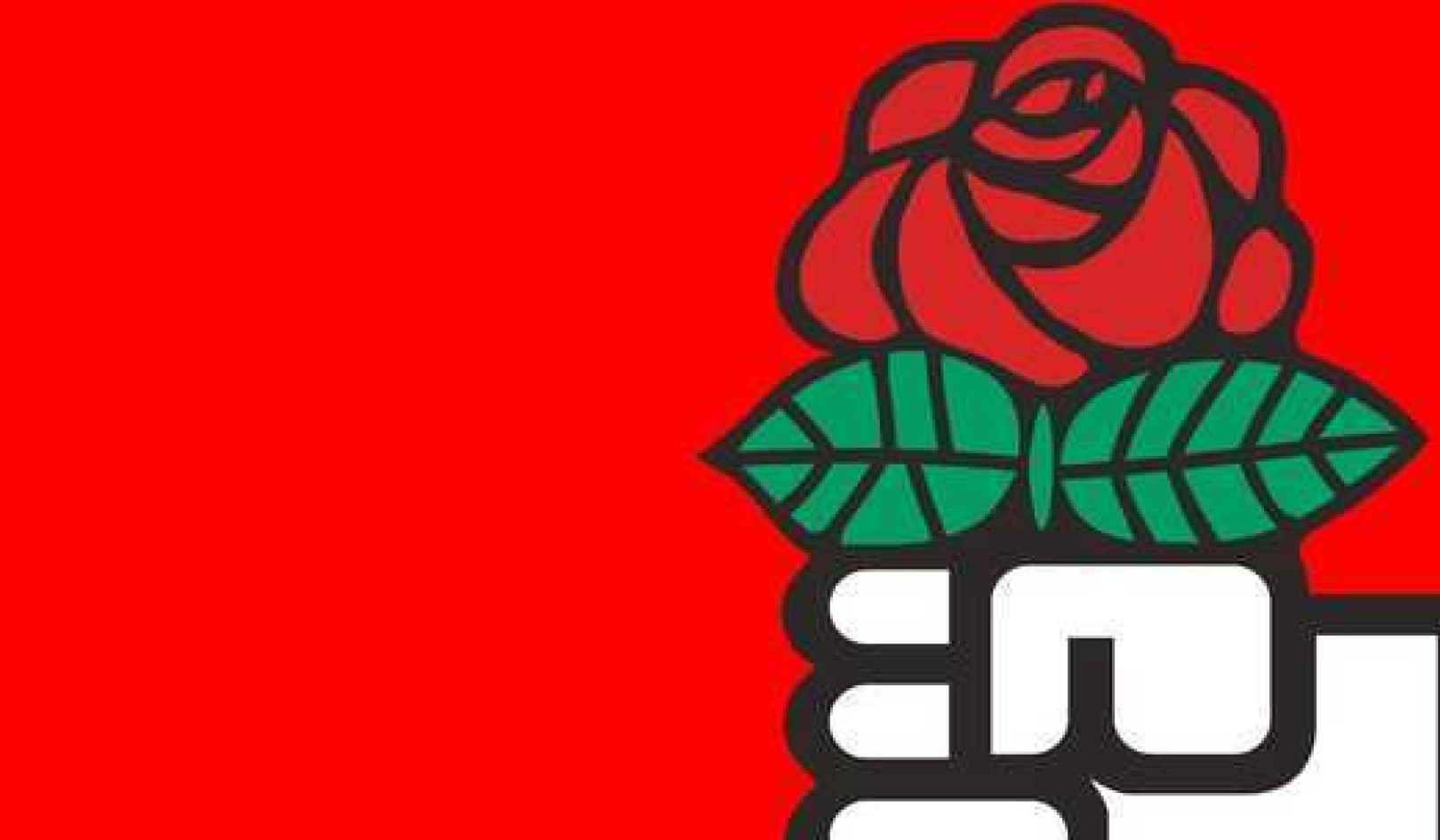
Image by Pete Linforth
Are we much different from the princes of ancient times? We play our loud music, engage in all sorts of play designed through technology simply to distract us from participating in life. Hordes of sexual images are used not only to make us desirous of commercial products but also to keep us from harnessing that energy for spiritual use, and this does nothing but disturb our qi (pronounced 'chi') and shen. We think we are compassionate when we practice small acts of charity, yet turn around and indiscriminately kill animals for products and food. We drive in fast cars and make sport of hunting and fishing.
Is music bad? No. Is play bad? No. Is sex bad? No. What is bad is when these are pursued in such a way as to cause injury to our qi, ching, and shen. These pursuits are injurious when we participate in them without a sense of compassion.
We should not participate in any activities that do not create a sense of compassion toward everything. For example, certain types of music can motivate people to be more compassionate. Certain acts of sex can cause us to feel and act compassionate. But, people of wealth and power can often be prone to fits of anger and may justify uncompassionate acts simply because they are in a position of power. No matter our position of power, we should never use it in an uncompassionate way.
KO HUNG: The way of attaining immortality also depends on extending our compassion to the very limits of the heavens (universe) and to view and treat everyone as we do ourselves. Despite this, the princes still overcome the weak, take advantage of the ignorant, use disorder for their own benefit, and create devastation to achieve their own ends.
The Golden Rule
Even though the Golden Rule has been in existence throughout most of human history, those of power and wealth are seemingly forever oblivious to it. Yet as Ko Hung proclaims, this rule is the very source of immortality. This point about the cruelty of princes is nothing new; we see it even today in dictators who use the fear of death and suffering to control the masses. The powerful have the erroneous view that they alone can achieve immortality because the masses live in fear of them. They do everything from erecting statues of themselves to naming everything after themselves, a futile and pitiful attempt to make their views and lives immortal to the people they subjugate.
But we also see these actions in what we call democracy, governments supposedly formed on principles of freedom. The problem is that the political system democracy and the philosophical ideal freedom often take on different meanings. The Taoist is always seeking freedom -- not only personal freedom, but freedom for all individuals as well. Even though we live in a democracy, freedom itself is in scant supply. Our democratic society is ruled by many responsibilities that prevent true freedom. Think carefully: Are we still not actively involved in conquering new lands? Are we not involved in destroying religions that do not meet the policies of our government? Do we not still herd people into lifestyles and environments that are injurious to them? Do we not still have symbols and laws designed to make people fearful? Just because we call ourselves democratic and free does not mean we are. Actually, there is more evidence showing we are neither, and live under a dictator called national interest.
As Ko Hung states, our achievement of immortality depends on our own ability to be compassionate and to treat every living thing as we would like to be treated. It is not a question of our government or our rulers doing the same for us. Regardless of what we find unjust, cruel, or antifreedom, we can see how we should act. The major rule of any true Taoist is to be nonconforming; this means we don't have to think and act as our government or society dictates, and we can be ourselves no matter what environment we live in or who we are ruled by. Since their inception Taoists have learned to blend with, yield to, and coexist within the worst of governments. Not all Taoists fled to the mountaintops to escape the unfair rule of their emperors and society.
KO HUNG: The First Emperor of the Chin dynasty drove out from his kingdom nine of each ten households because he thought they were contemplating a revolt. Emperor Wu of the Han dynasty caused the entire world sorrow because he killed half the population of his kingdom. He then ordered prayers to be chanted so the population would again increase...
This is true of all men of power: They panic at the thought of being usurped and panic at the thought of not being served. Businessmen, politicians, and religious leaders are all guilty of this contradiction. It's as though they seek to emotionally and spiritually blackmail the masses for not bending to their every whim. When the businessman is caught cheating he invariably blames it on those of lesser rank or on the laws of the government itself. The Enron thieves, the greatest robbers of all time, shrugged off any responsibility for their thievery because they cleverly and falsely claimed, through their high-priced attorneys (paid with stolen money), that everything they did was well within the law, resorting to finger pointing at each other while numerous people suffered the loss of their money. One of my students is a very prominent attorney and he once commented to me that the law is no longer a question of justice and truth, but one of cleverness. Needless to say, what they did neither was within the law of the land or the Golden Rule, nor was it motivated by compassion for its investors or our country as a whole.
Likewise, politicians, to meet their own political ends, will personally attack and destroy anyone who stands in their way. Did we not see this in President Clinton's impeachment trial? Did we not see this with McCarthy's Communist witch hunt? These so-called political trials were certainly not motivated by either compassion or the Golden Rule.
Did we not see the religious figure Jimmy Swaggart claim he committed all those immoral acts because God wanted to test him? He actually had the audacity to blame God for his immorality. Did we not see Oral Roberts tell his followers that unless he raised eight million dollars by a certain date God would strike him dead? This is no more than spiritual blackmail.
All of these examples point to how people in power will seek to destroy what they think opposes them, and when they are done destroying they turn and seek forgiveness. They always seek forgiveness, but never give it. It is very much like a man who points a gun at another man and shoots him, but takes no responsibility because the second man didn't duck or get out of the way of the bullet.
KO HUNG: With the ever increasing vexations gnawing at their vital energies, with both men and ghosts equal in their hatred of them, these two emperors had but an empty and vain search for immortality, never experiencing or undertaking a true cultivation of a spiritual alchemical process. In reality neither of them even had the total awareness to carry out his mundane affairs completely. Therefore, they did not truly seek to learn the marvelous and profound secrets of immortality.
Here Ko Hung claims that men who are hated for all their evil actions can never achieve immortality because their minds are too vexed. For if they cannot carry out mundane affairs with compassion, they certainly cannot carry out the requirements for attaining immortality. As the old Chinese saying goes, "Birds of a feather flock together." Hence, people of greed and power will attract only like people.
Teach Me Everything You Know...
Once when I was teaching in Indonesia a certain wealthy Chinese businessman cornered me at a luncheon. Several people were there, including the wife of the boss of this businessman. He had offered to put me up in a private villa, pay me a large sum of money, and procure whatever amusements or items I needed during my visit. He wanted me to teach him everything I knew about Taoist alchemy that I had learned from my teacher. The problem was that I had already been in Indonesia for three weeks and had been teaching every day, and I wanted time with my wife and son.
After I explained that if he was willing to wait one week I would attempt to teach him, but that I preferred not to go to a private villa (which seemed like a jail to me), the man was insistent that I leave the next day. Being used to having his way he grew more adamant, and I grew more determined not to teach him at all. The wife of his boss began laughing and said to him, "You cannot treat him like an acquisition. You have failed. He is just like his teacher and will only do what he wants when he wants to. Besides, it is good to see that Americans make good husbands."
The man left the restaurant very upset. My then wife was equally upset with me when she heard the whole story, because this man was of very high position and great wealth. My teaching him would have given me and her family greater prestige. When I told my teacher the story he humorously called me an idiot for not accepting the man's money, but praised me for not sacrificing time with my family.
A week later I saw the man, and he apologized to me. I explained to him several aspects of Taoist alchemy. I then realized why my teacher had said what he did about not accepting his money. The man never paid me, but I got to enjoy that week with my son. Had this man the patience to wait just one week, I would have been richer and he would not have fallen seriously ill three months later. So Ko Hung is correct: It is no surprise that this man, because of his impatience, anger, and arrogance, never enjoyed the rewards of health, longevity, and, especially, immortality.
The Balance Between Student and Teacher
For those who might be wondering about this whole question of money and why my teacher would have encouraged the receipt of material gifts, there is an old Chinese saying, "Silver must be sacrificed if gold is to be obtained." In Taoism, and I am sure this is true in other spiritual traditions as well, there is a balance between student and teacher wherein the student shows his sincerity and respect by wanting to pay something to his teacher for what he is receiving, and the teacher should attempt to give more instruction than what the student paid for. So there must be generosity on both sides.
Money is not evil, but greed for it is. Money is good: It builds temples; it feeds teachers, monks, and nuns; and it prints books of wisdom. A Buddhist teacher once told me, "The payment for teachings, no matter if a large or a small amount, allows the teachings to hold." What he meant was that when a student exercises his generosity, the teachings he receives will feel worthy. Students who attempt to get teachings for nothing by retribution end up with nothing and nothing will hold. A teacher who teaches for nothing normally does so because he doesn't feel he has anything to give back. This is a total lack of respect for the teachings.
In Taoism, and in other traditions as well, there are three types of giving, or charity, that should be exercised by both student and teacher -- the giving of money, the giving of labor or skills, and the giving of wisdom or the teachings. Giving and charity are at the foundation of compassion. In present times I hear spiritual organizations and teachers use the word donation to soften the blow of simply saying "Pay me." In the end, neither student nor teacher should be attached to money, nor should either be attached to "not having money." As the great Taoist philosopher Yang Chu said, "If wealth wishes to come to you, do not avoid or refuse it; if poverty comes to you, do not attempt to avoid it or be saddened by it."
I once heard a wonderful interview with the actor/comedian Drew Carey. He made a comment about something his mother told him that I thought was truly wonderful: "If it is a money problem, then it really is not a real problem." I thought this was wonderful because in our present culture we obsess about money problems. Yet money problems are the easiest to fix, the easiest to negotiate, and the easiest to manage. True problems have to do with health issues, safety issues, and emotional issues.
Enough said about money.
KO HUNG: On those occasions when I was able to acquire oral instructions for an important alchemical process, or I had the opportunity of meeting with an excellent teacher, I would still desire closeness with my venerable wife and my small children. I would still have fond, loving thoughts of the hill where I see foxes and rabbits running about freely. Gradually, the day of my passing draws closer and closer, and insensibly I only grow older and weaker. I do all this knowing that immortality can be achieved, yet I find myself unmotivated to undertake the tasks to do so. So even though I am well aware of the uselessness of the many popular activities surrounding me, I cannot seem to let them go. Why? Because these have become habits and attachments, and it is so difficult to separate myself from the desire to be involved with these popular activities.
I very much relate to this portion of his text. My life has been blessed with learning from really good teachers, yet within those periods I missed many of the beautiful things life had to offer. As I grow older I too find myself attached to things that could be deemed un-Taoist and un-Buddhist. But, then, I saw these same characteristics in all my teachers as well. It is human nature, and true even of cultivators, to have joy and an attachment to something outside the arduous practices. To me it is like a release valve letting off excess energy acquired from practicing.
The Sixth Patriarch of Chinese Buddhism, Hui Neng, once said, "If you want to attain enlightenment, stay far away from the monasteries." Why would he say that? Because more often than not, the attachment we create to an environment can become the very hindrance to what we are trying to achieve.
Reprinted with permission of the publisher, Inner Traditions Intl.
©2003. http://www.innertraditions.com
Article Source
The Jade Emperors Mind Seal Classic: The Taoist Guide to Health, Longevity, and Immortality
by Stuart Alve Olson.
 The Jade Emperor’s Mind Seal Classic teaches that one can attain immortality through the cultivation of the three treasures of Taoism: ching (sexual and physical energy), qi (breath and vital energy), and shen (spirit and mental energy). Chinese history is sprinkled with accounts of individuals who applied the lessons of the Jade Emperor and lived up to 200 years. Drawing on his extensive knowledge of Taoism, martial arts, and Chinese history and culture, Stuart Alve Olson accompanies his translations with informative commentary that explains the historical context of the texts as well as demonstrates the practical applications of their teachings in contemporary life.
The Jade Emperor’s Mind Seal Classic teaches that one can attain immortality through the cultivation of the three treasures of Taoism: ching (sexual and physical energy), qi (breath and vital energy), and shen (spirit and mental energy). Chinese history is sprinkled with accounts of individuals who applied the lessons of the Jade Emperor and lived up to 200 years. Drawing on his extensive knowledge of Taoism, martial arts, and Chinese history and culture, Stuart Alve Olson accompanies his translations with informative commentary that explains the historical context of the texts as well as demonstrates the practical applications of their teachings in contemporary life.
Info/Order this book. Also availalbe as a Kindle edition.
About the Author
 STUART ALVE OLSON has been a practicing Taoist for over thirty years and has studied with the famous Taoist master T.T. Liang (1900-2002). He lectures throughout the world and lives in the San Francisco Bay Area where he teaches Taoist meditation, I T'ai Chi, related Yang-Style forms and weapons, and Eight Brocades Seated Qigong. He also translates and compiles Asian philosophy-related books. Stuart is presently involved, along with others, in forming the American Taoist Association.
STUART ALVE OLSON has been a practicing Taoist for over thirty years and has studied with the famous Taoist master T.T. Liang (1900-2002). He lectures throughout the world and lives in the San Francisco Bay Area where he teaches Taoist meditation, I T'ai Chi, related Yang-Style forms and weapons, and Eight Brocades Seated Qigong. He also translates and compiles Asian philosophy-related books. Stuart is presently involved, along with others, in forming the American Taoist Association.



























